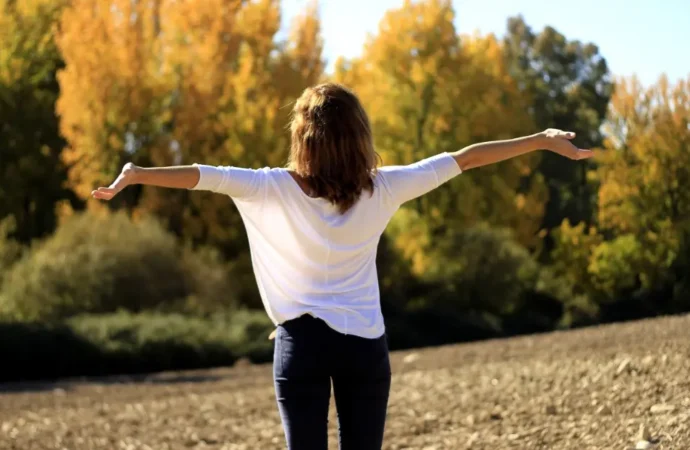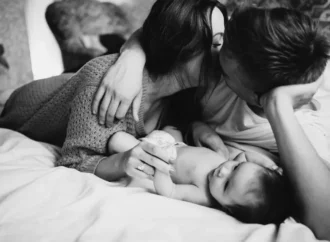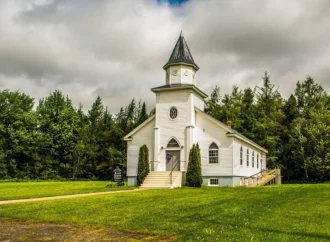Moving day is fast approaching for me, and until yesterday I was fretting about logistics. Boxes for packing up my books have been hard to come by, and I was stressing over who I could ask to help with the actual move. One friend was available, but another is recovering from surgery, while my middle son was already committed to a family event.
Then I called my youngest son, and within 15 minutes my tension and worry vanished.
My son helps coach the basketball team at a small local college, and he hit on the idea of using my move as a fundraiser for the team. He’d kick in some bucks, I’d do the same, and the team would donate a few hours of work while raising a few hundred dollars for their sport.
Problem solved. I went to bed and woke in the morning a happy man, thankful for a clever son.
That fleeting sensation of happiness mingled with appreciation usually comes on the heels of a gift, a lucky break, even a kind word. It’s a great feeling, but usually has a short shelf life.
There is, however, a deeper sense of gratitude that not only endures the good and bad seasons of life, but can change the way we live and think.
Writing on my blog during that horrible time of the Covid lockdowns, a contested presidential election, and other disasters, I talked about this deeper gratitude, what G. K. Chesterton called “happiness doubled by wonder.” Here’s the key paragraph of that piece:
About six months ago, I began saying a prayer of gratitude every morning. I’ve forgotten a few times, but mostly I remember. It’s pretty informal—I’m drinking coffee and often sitting on the porch, watching an occasional deer lope across the yard—but running through the things I’m grateful for—the fact that I have another day on this earth, my kids and grandkids, my siblings and other family members, my friends, and the dead I loved and love—makes a difference most days. It takes me out of myself, which is so often a fine thing, and reminds me that the greatest adventure in the world is just being born and living on planet earth.
Since then, I’ve rarely missed a day saying my gratitude prayer, though it’s sometimes as short as, “Thank you, God, for another day.”
Never much a part of my earlier years, this consistent gratitude keeps me aware of how small so many problems are when compared to the sheer beauty and power of a beating heart and a drawn breath. Part of me regrets all those years I lived without deep gratitude, but I’m grateful that this gift appeared at all. It has made me kinder, less inclined to judgment, and much more optimistic about the future than some of my friends and family members.
Of course, there’s a sticking point to gratitude. When we feel grateful for a favor done by a friend, we thank the friend. When we experience the more profound sense of gratitude for apprehending the world as an object of beauty, mystery, and romance, we feel this same drive to offer a thank you, but to whom or to what?
Believers do so by raising their hearts and minds to the Almighty, whether the act is as simple as my morning prayer or as fulsome as a Sunday morning worship service. After all, if you are grateful for the gift of life and feel loved in the bargain, then expressing that appreciation is natural.
But what about the person who doesn’t believe in a power beyond the physical realm, or else believes so halfheartedly that a Higher Power is generally vague, treated as fate or chance? To say thank you to nothing or to good luck simply doesn’t work. Without a Giver, gratitude itself can’t exist.
This absence of gratitude may help explain our country’s troubles these days. In the news, on social media, and among family and friends we see this lack of appreciation for the rights and liberties we enjoy in the United States and for the many blessings derived from living here. Make politics your god, as so many people do nowadays, and gratitude has no place in your theology.
A quote attributed to singer-songwriter Willie Nelson applies to me as well: “When I started counting my blessings, my whole life turned around.” Blessings explicitly imply a benefactor, and to count them is to say thank you.
Decide where your blessings come from, discover the Giver of that gift, and see where it leads you.
—
This article was made possible by The Fred & Rheta Skelton Center for Cultural Renewal.
Image credit: Pxhere
















Leave a Comment
Your email address will not be published. Required fields are marked with *